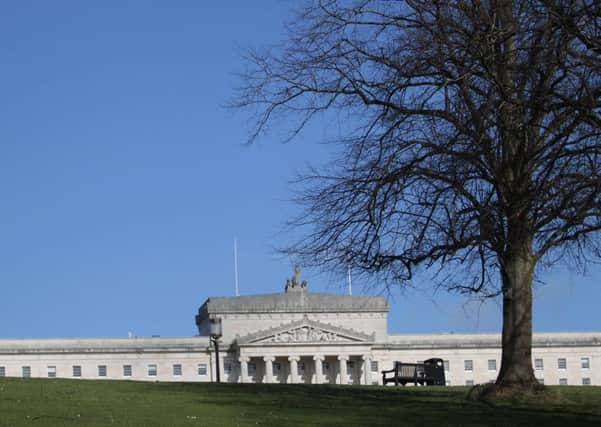Sam McBride: From Wednesday, NI will be in an unprecedented democratic vacuum


But from Wednesday, the Province will enter an unprecedented democratic vacuum.
Until now, there has at least been the possibility of a return to Direct Rule. That has meant that in the event of a major crisis or a requirement for urgent legislation, Parliament could suspend devolution overnight by passing emergency legislation.
Advertisement
Hide AdAdvertisement
Hide AdFrom Wednesday, Parliament will be dissolved and from that point such a measure will be an impossibility for a period of at least five weeks.
Westminster ministers remain in place until polling day, so Secretary of State James Brokenshire will remain at the helm of the Northern Ireland Office until June 8. However, he cannot take any role in devolved matters without Westminster legislation revoking Stormont’s powers.
And, with the suspension of the Stormont talks on forming a devolved Executive (which appeared to have made limited progress anyway), there will from Wednesday be no other route towards any sort of democratic accountability for government in Northern Ireland.
In some respects, that will have little direct impact on most people’s lives.
Advertisement
Hide AdAdvertisement
Hide AdAlthough some workers have lost their jobs or been placed on protective notice for redundancy due to the absence of a Stormont budget, the lack of an Executive since January has barely been noticed by most people.
But there are three significant implications of the current extraordinary situation.
First, there is no democratic accountability for the day to day business of government. The Civil Service is running Northern Ireland with no checks or balances, outside of the possibility of a court challenge.
That may seem to be an esoteric concern, but officials operating for months without any ministerial control at a time of Brexit and in the absence of a budget agreed by the public’s elected representatives raises profound questions about the legitimacy of any controversial decisions which they take.
Advertisement
Hide AdAdvertisement
Hide AdSecondly, much of the important business of government is almost unquantifiable – certainly to the general public.
As well as daily decisions of officials which ministers query, long-term planning is now impossible in areas such as health and infrastructure where major decisions had already been delayed by the last Executive. Civil servants will keep paying doctors and resurfacing roads, but they cannot take strategic decisions about the centralisation of some NHS services or changes to the road network.
That backlog will impact on Northern Ireland for years to come.
But perhaps the most significant potential impact of the situation is that officials are now constrained if Northern Ireland faces a major crisis over the next month and a half.
Advertisement
Hide AdAdvertisement
Hide AdThe cash for ash scandal has shown what can happen if flawed legislation is not urgently amended. Taxpayers were left with a potential bill of almost £500 million due to months of delay in closing the RHI scheme which incentivised claimants to run their subsidised boilers round the clock.
If a similar problem emerges at any point in the next six weeks there will no legislative route to fixing it in the absence of a Stormont or Westminster legislature.
And although a minister would find it exceptionally difficult to change the law without a legislature in place, they would at least have prerogative powers – which they exercise on behalf of the Queen – and which in extremis could perhaps be used to amend legislation in a crisis, with the hope that the courts would uphold such a situation as being in the public interest.
Any other national or local emergency will now have to be handled by the civil service, or by the police or military authorities without ministerial oversight.
Advertisement
Hide AdAdvertisement
Hide AdFor the first time in the history of the state, there is now a protracted period with no democratic government of any sort responsible for much of the Province, including the health system, schools and the police.